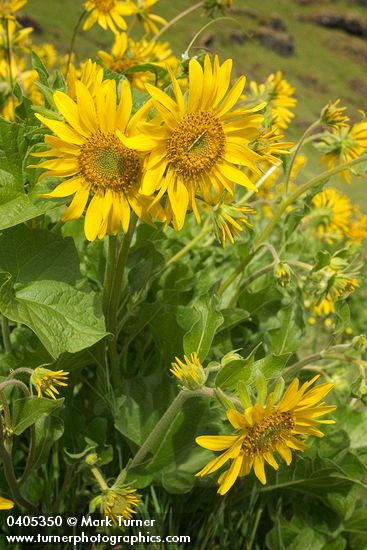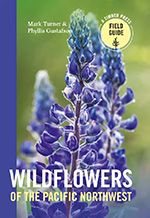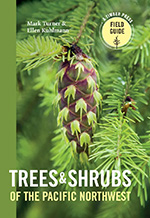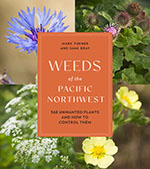Licensing
Copyright Notice and Permitted Uses for Images On This Site

Copyright in all of the photographs on this web site is owned by Mark Turner unless explicitly noted otherwise. You have the right to use the images in limited applications (see below), but not the right to distribute, sell or use the images in any way you wish.
You may use the images in comps, layouts for in-house presentations, rough draft designs for your clients, storyboards or other comps for yourself or your clients. You must retain the metadata embedded in each image file and the visible copyright and identification watermarks. That is the full extent of reproduction rights that are granted. For all other uses, you must contact Mark Turner.
You may not use the images for advertising, brochures, editorial publications, public multimedia presentations or any other uses. You may not sell, publish, license or otherwise distribute any of the images without a License To Use from Mark Turner. You may not place copies of the images on any web page, blog, or other electronic media for general or internal company access. A reproduction license is always required and a license fee must usually be paid.
When using images in comp layouts, remember that the copyright belongs to Mark Turner. Any use of the images beyond the limited uses set forth above constitutes a violation of the applicable copyright law and may result in damages and costs being assessed against you. If your design work involves manipulation of a photograph - retouching, shrinking, stretching, darkening, lightening, tracing, copying, adding images to other images or in any other way changing them - you may be creating a Derivative Work of the original image (i.e. anything derived from one or several original(s)) in violation of copyright law, which again may result in damages and costs being assessed against you.
Under copyright law, the creator of the original work also owns the copyright to all works derived from the original. Therefore, if all or part of your work is seen as having been derived from the original image(s), you do not own the copyright to the derivative work, just as you do not own the copyright to the original work.
For the full text of The Copyright Act Of 1976, As Amended click here.
To learn more about copyright in plain English read 10 Copyright Myths.
Stock Photography License Fees

Many people, advertising/design professionals and private citizens alike, have requested usage rights in the images on this site. Rights in most of the images can be licensed directly through my studio, but some must be licensed through my worldwide agents, Getty Images or age fotostock. Please query us first and we'll let you know if a particular image needs to be licensed through one of our agents.
If you're seeking a print for the wall of your home or office, you need our Display Print Price List.
Prices for usage of stock photographs vary widely from source to source, and are generally based upon the licensee's usage requirements. A price will be quoted based on your requirements. To determine an exact price we need to know the following:
- Print or Multi-media/Electronic Use.
- Advertising, Corporate or Editorial Use.
- Size of image to be used.
- Duration of Term (One-time non-exclusive, 6 months, 1 year, etc.).
- Number of Insertions (advertising), size of Press Run (if use is print other than advertising).
In most cases, the minimum stock license fee for a small inside editorial use in a book or magazine will be $125. Brochures and catalogs are considered advertising and higher fees will apply.
For further information about media usages, please consult the PLUS License Generator. This is a tool to help create industry-wide standardized licensing terms. The Picture Licensing Universal System -- a cooperative, multi-industry initiative -- is a three part system that clearly defines and categorizes image usage around the world, from granting and acquiring licenses to tracking and managing them well into the future.
Requests for Free Use of Photographs
We get several requests from individuals and non-profit organizations each month asking to use one or more of our images at no charge. Most of the time the answer is going to be "no."
The criteria I use to decide whether to grant a no-fee license are:
- Is this a group of which I am a member and already support in other ways? If so, I'm inclined to provide photos at no cost.
- Is this a student preparing a one-off report or presentation as part of a class assignment? If so, and you can use the watermarked images on the website, then I'm inclined to grant permission.
- Is this a teacher in a public school preparing a classroom lecture support program (i.e. PowerPoint slideshow) for use only in their classroom and able to use the watermarked images on the website? If so, then I'm inclined to grant permission.
- Is this a non-profit organization I've never heard of? I will probably say "no." It doesn't matter how great your cause is.
- Is anyone else involved in the project for which you wish to use my photographs getting paid? That includes staff members, web designer, web hosting company, printer, paper supplier, other photographers and artists, utility companies, accountant, etc. I will probably say "no." Why should I, or any other photographer, subsidize the other suppliers who are getting paid by giving you my work for free?
Photography is how I make my living. There are real costs involved in finding and photographing the wildflowers and other native plants on this website. It takes time to have these images available for you to view and to prepare reproduction-ready high-res files. It takes money to pay for web hosting and programming. And my insurance company sure won't provide health insurance for free.
If you have any questions or need information on determining usage prices please email or phone me. I'll be happy to help.
Digital Files and Image Delivery
Most of our clients prefer to receive digital files. We generally follow UPDIG (Universal Photographic Digital Imaging Guidelines) when preparing files. Unless you tell us otherwise, we'll convert the raw file that came from the camera into an 8-bit Adobe(1998) RGB TIFF, optimized for print, sized for your use, and with NO final sharpening applied. We scan our film archive at 4000 dpi with a Nikion Super Coolscan 5000ED scanner. Drum scans are available upon request for an additional charge. Small numbers of image files can be delivered via FTP. Large quantities of big files are more practical to ship on a CD or DVD.



